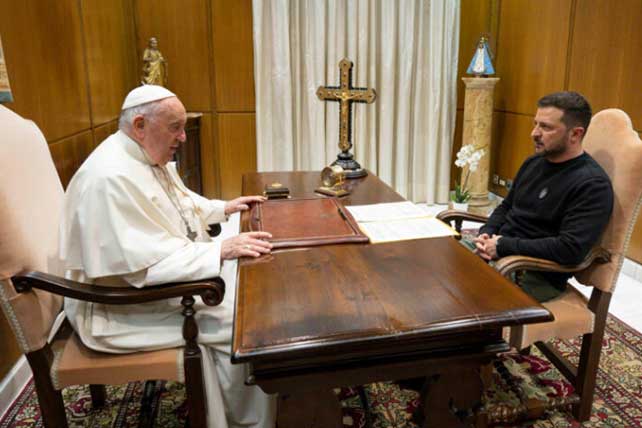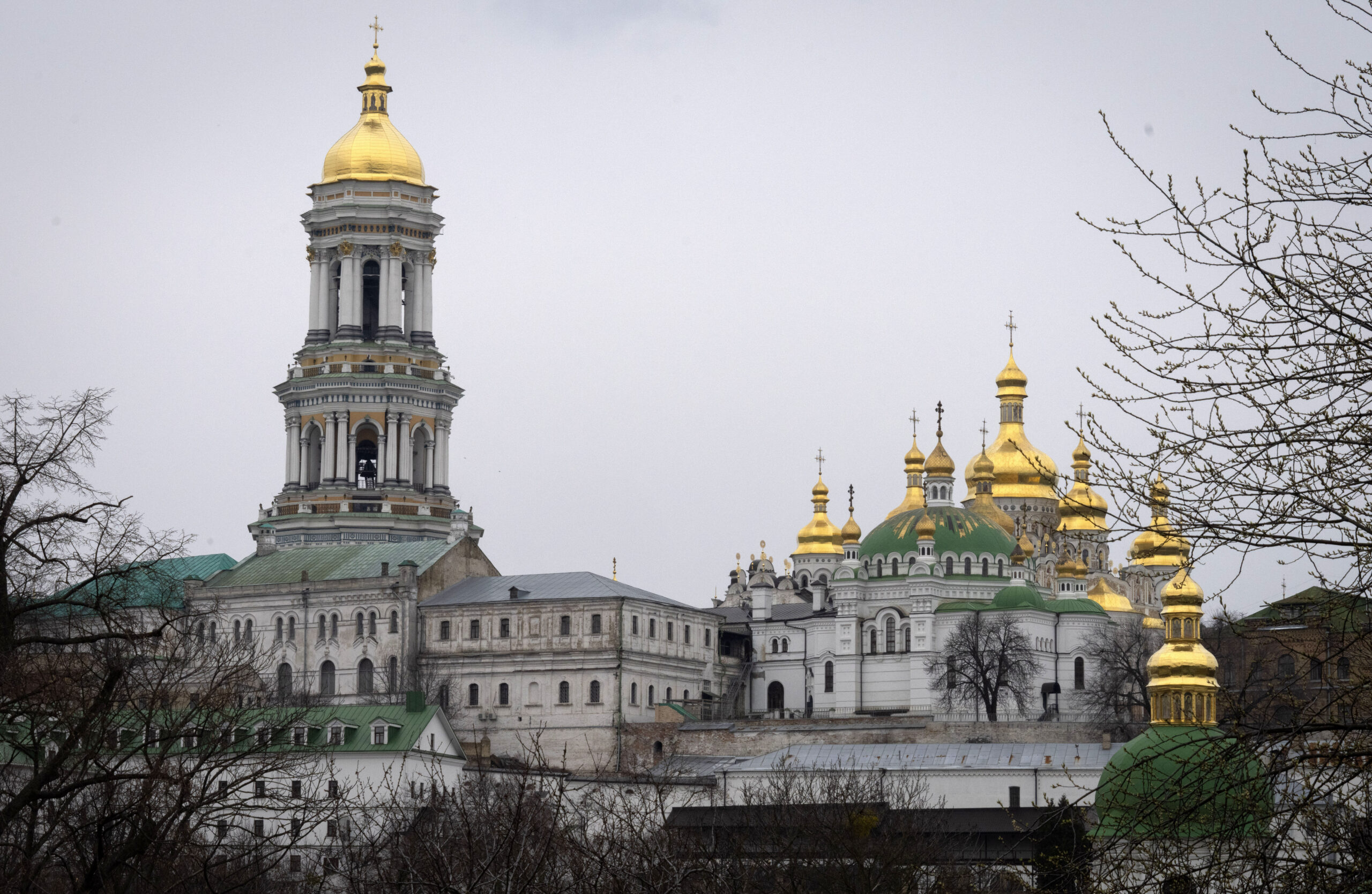VATICAN CITY (RNS) — Following the Angelus, his weekly prayer service at the Vatican, on Sunday (Aug. 25), Pope Francis criticized Ukraine’s decision to ban the Ukrainian Orthodox Church, which has historically been tied to Russia, saying that Christians should be allowed to pray freely and that churches should not be abolished.
“In thinking about the laws recently adopted in Ukraine, I fear for the freedom of those who pray, because those who truly pray always pray for all,” Francis said after the prayer service.
Francis stated that “a person does not commit evil by praying” and urged Ukrainian leaders to “let those who want to pray be allowed to pray in what they consider their Church.”
RELATED: Ukrainian Ambassador to the Vatican Believes a Visit by Pope Francis Would Promote Peace
“Please, let no Christian church be abolished directly or indirectly. Churches are not to be touched!” he said.
A day earlier, on Ukraine’s Independence Day, Ukrainian President Volodymyr Zelenskyy signed into law a long-debated bill outlawing churches affiliated with the Russian Orthodox Church, including the Ukrainian Orthodox Church. While the UOC has denied having any ties to the Moscow patriarchate since the beginning of the war between Russia and Ukraine, the church has been suspected of promoting Russian propaganda.
Ukraine’s security service has accused the UOC of acting as a platform to justify the Russian invasion of Ukraine and says its churches are havens for spies. The organization has launched criminal proceedings against at least 100 UOC clergy members, with 26 already sentenced.
FILE – The Monastery of the Caves, also known as Kyiv-Pechersk Lavra, one of the holiest sites of Eastern Orthodox Christians, in Kyiv, Ukraine, Thursday, March 23, 2023. (AP Photo/Efrem Lukatsky, File)
A study conducted in April by the Kyiv International Institute of Sociology found that 83% of Ukrainians felt that the government should intervene in the activities of the UOC, while 63% supported banning the church altogether.
After some two years of discussion, Ukraine’s parliament overwhelmingly passed the law by a vote of 265-29 on Aug. 20. Religious groups with ties to Russia were allowed nine months to sever their relationship with Moscow or leave the country.
The spokesman for the UOC, Metropolitan Klyment, told journalists after the bill was passed that the ban “will only discredit, including internationally, those who will try to do this,” and compared the policy to the Soviet takeover of church properties in the last century.
The majority of Ukrainians are Orthodox Christians, but following Russia’s annexation of Crimea in 2014, Metropolitan Epiphanius I of Kyiv and All Ukraine led his loyalists to form a new denomination, the Orthodox Church of Ukraine. In 2019, the spiritual head of the global Orthodox Church, Patriarch Bartholomew I of Constantinople, officially recognized the independent church.
The split deepened the religious dimension of the conflict between Russia and Ukraine and gave Moscow Patriarch Kirill, an ally of Russian President Vladimir Putin, cause to defend Russia’s invasion, describing it as a holy war. In the territory that Russian forces occupy in eastern Ukraine, they have attempted to dismantle the Orthodox Church of Ukraine.


